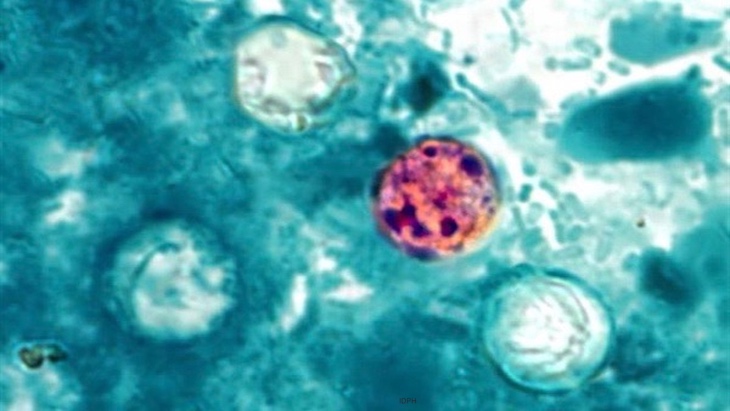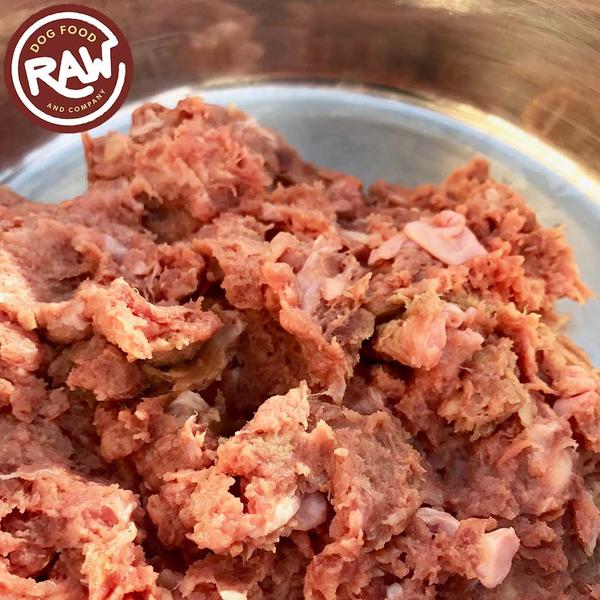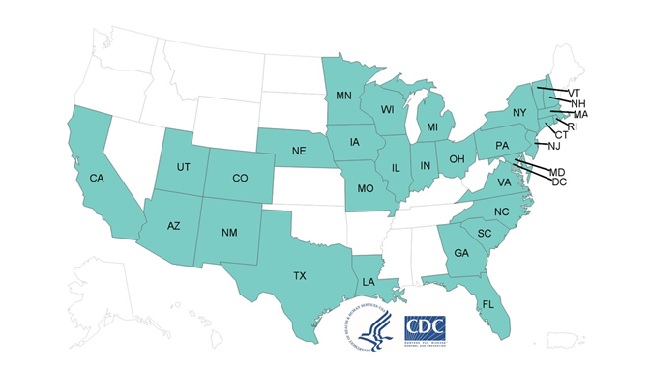Scientist from Perdue University published in the August issue of Applied and Environmental Microbiology a study in which they performed RNA sequencing on three isolates (two outbreak-associated isolates and a reference Salmonella Heidelberg strain) with various levels of heat tolerance to gain insight into the mechanism behind the isolates’ enhanced heat tolerance. A genomic analysis was performed to determine the genetic relationships among the outbreak isolates. The conclusion of this study revealed that (i) six Salmonella Heidelberg isolates associated with the foodborne outbreak had enhanced heat tolerance, (ii) one outbreak isolate with enhanced heat tolerance also had an enhanced biofilm-forming ability under stressful conditions, (iii) exposure to heat stress increased the expression of Salmonella Heidelberg multidrug efflux and virulence genes, and (iv) outbreak-associated isolates were likely transcriptionally primed to better survive processing stresses and, potentially, to cause illness. @ https://aem.asm.org/content/85/16/e01065-19
Emmy-S
Salmonella enterica serovar Heidelberg is currently the 12th most common serovar of Salmonella enterica causing salmonellosis in the United States and results in twice the average incidence of blood infections caused by nontyphoidal salmonellae. Multiple outbreaks of salmonellosis caused by Salmonella Heidelberg resulted from the same poultry processor, which infected 634 people during 2013 and 2014. The hospitalization and invasive illness rates were 38% and 15%, respectively. We hypothesized that the outbreak strains of Salmonella Heidelberg had enhanced stress tolerance and virulence capabilities. We sourced nine food isolates collected during the outbreak investigation and three reference isolates to assess their tolerance to heat and sanitizers, ability to attach to abiotic surfaces, and invasiveness in vitro . We performed RNA sequencing on three isolates (two outbreak-associated isolates and a reference Salmonella Heidelberg strain) with various levels of heat tolerance to gain insight into the mechanism behind the isolates’ enhanced heat tolerance. We also performed genomic analyses to determine the genetic relationships among the outbreak isolates. Ultimately, we determined that (i) six Salmonella Heidelberg isolates associated with the foodborne outbreak had enhanced heat tolerance, (ii) one outbreak isolate with enhanced heat tolerance also had an enhanced biofilm-forming ability under stressful conditions, (iii) exposure to heat stress increased the expression of Salmonella Heidelberg multidrug efflux and virulence genes, and (iv) outbreak-associated isolates were likely transcriptionally primed to better survive processing stresses and, potentially, to cause illness.
IMPORTANCE This study provides a deep analysis of the intrinsic stress tolerance and virulence capabilities of Salmonella Heidelberg that may have contributed to the length and severity of a recent salmonellosis outbreak. Additionally, this study provides a comprehensive analysis of the transcriptomic response of S. enterica strains to heat stress conditions and compares baseline stationary-phase gene expression among outbreak- and non-outbreak-associated Salmonella Heidelberg isolates. These data can be used in assay development to screen isolates for stress tolerance and subsequent survival. This study adds to our understanding of the strains associated with the outbreak and informs ongoing regulatory discussions on Salmonella in poultry.
ruth
In the past few years, every summer sickness due to Cyclospora happens. Food poisoning bulletin reports that The Cooper’s Hawk of Jacksonville, Florida, Cyclospora outbreak has sickened 80 to 100 people. A specific food or beverage that caused the outbreak has not yet been identified. There is a current multistate Cyclospora linked to basil imported from Mexico. There are at least 132 people sick in 11 states in that outbreak. And there is another outbreak in Minnesota, with at least 35 people sick, that is associated with three restaurants in that state. In three months, 580 people in the United States have been sickened with Cyclosporiasis, according to the CDC. @ https://foodpoisoningbulletin.com/2019/coopers-hawk-cyclospora-outbreak-sickens-80-100/
The Cooper’s Hawk cyclospora outbreak in Jacksonville, Florida has sickened 80 to 100 people; there are other cyclospora outbreaks in the US.
ruth
On August 03, 2019 Texas Tripe Inc. of Detroit TX recalled, Texas Tripe brand name products: Ground Turkey Necks, Chicken Tripe complete, Ground chicken W/bone, Shepherd blend, Chicken Pork Salmon W/egg, Chicken Blend Green Tripe, Phat Katz, Senior Pro, All-Star Bully Blend, Beef Blend, Duck-Rabbit, Goat Tripe Complete, Boneless Chicken Blend, Turkey Pork Blend, Beef Tripe& Ground Rabbit, and Wolf Run, due to potential contamination with Listeria monocytogenes. The products were distributed in Texas, Oklahoma, Colorado, Louisiana, Kansas, New York, New Jersey, Pennsylvania, Indiana, California, Georgia, Alabama, Mississippi, Florida, Virginia, S. Carolina, Nevada, New Mexico, Arizona, Idaho, Wisconsin, N Carolina, Nebraska, Wyoming, Montana, Utah, Missouri, Arkansas, Tennessee, Ohio, Illinois, Michigan, Minnesota, and Kentucky, directly to the end-user, via either FedEx or Delivery Truck.
No illnesses have been reported to date. The potential contamination was found after a routine investigation performed by the state of Texas. Texas Tripe claims that it had found a possible source of contamination and has since made the corrective action. @ https://www.pr.com/press-release/791340
Texas Tripe is recalling on products from 5/28/2019 through 7/1/2019 for possible contamination.
ruth
The CDC reported in its July 23 report that the number of cases of domestically acquired Cyclosporiasis has increased from the previous month and remains elevated in the US on May 1, 2019. As of July 23, 2019, 580 laboratory-confirmed cases of Cyclosporiasis were reported to CDC by 32 states (see ma), in people who became ill since May 1, 2019, and who had no history of international travel during the 14 days before illness onset. At least 38 people were hospitalized; no deaths were reported. At this time, multiple clusters of cases associated with different restaurants or events are being investigated. One outbreak is linked to basil imported from Mexico. The CDC could not link many cases to an outbreak, in part because of the lack of validated molecular typing tools for C. cayetanensis. @ https://www.cdc.gov/parasites/cyclosporiasis/outbreaks/2019/a-050119/index.html
CDC and federal, state, and local public health partners are investigating an increase in reported cases of Cyclospora infection (cyclosporiasis). Reports of cases tend to increase during summer months in the United States.




